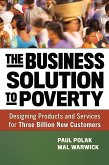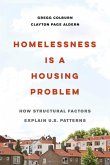Stephanie Southworth and Sara Brallier discuss Homelessness in the 21st Century with Ari Barbalat on the New Books Network
An accessible and engaging introductory text on homelessness and housing policy, this timely book uses a sociopolitical framework for understanding issues of homelessness in the United States.
The authors, leading sociologists in their field, use data from over 250 interviews and field notes to demonstrate that homelessness is rooted in the structure of our society. They identify and describe the structural barriers faced by people who become homeless including the lack of affordable housing, the stigmatization and criminalization of homelessness, inadequate access to healthcare, employment that does not pay a living wage, and difficulty accessing social services. Despite seemingly insurmountable odds, most of the people included in this book believe strongly in the American Dream. This book examines how the belief in the American Dream affects people experiencing homelessness. It also highlights individuals' experiences within the social institutions of the economy, the criminal justice system, and the health care system. Furthermore, this book explores how stereotypes of people experiencing homelessness affects individuals and guides social policy. The authors examine policy changes at the local, state, and national levels that can be made to eradicate homelessness, but argue that there must be a political will to shift the narrative from blaming the victim to supporting the common good.
Expertly combining history, theory and ethnography, this book is an invaluable resource for those with an interest in housing policy.
An accessible and engaging introductory text on homelessness and housing policy, this timely book uses a sociopolitical framework for understanding issues of homelessness in the United States.
The authors, leading sociologists in their field, use data from over 250 interviews and field notes to demonstrate that homelessness is rooted in the structure of our society. They identify and describe the structural barriers faced by people who become homeless including the lack of affordable housing, the stigmatization and criminalization of homelessness, inadequate access to healthcare, employment that does not pay a living wage, and difficulty accessing social services. Despite seemingly insurmountable odds, most of the people included in this book believe strongly in the American Dream. This book examines how the belief in the American Dream affects people experiencing homelessness. It also highlights individuals' experiences within the social institutions of the economy, the criminal justice system, and the health care system. Furthermore, this book explores how stereotypes of people experiencing homelessness affects individuals and guides social policy. The authors examine policy changes at the local, state, and national levels that can be made to eradicate homelessness, but argue that there must be a political will to shift the narrative from blaming the victim to supporting the common good.
Expertly combining history, theory and ethnography, this book is an invaluable resource for those with an interest in housing policy.
"This book shifts the focus about the causes of homelessness, moving from individualistic explanations to social and political causes. I am unaware of other books that take this perspective exclusively and thus this book will be of value to a variety of audiences, particularly undergraduates, many of whom are considering broader issues for the first time upon starting their college careers."
Catherine Mobley, Professor of Sociology, Clemson University.
"Southworth and Brallier approach homelessness with the keen eyes of sociologists who understand that the homeless make choices within constraints of a social structure over which they have little control. The authors' comprehensive treatment of the interplay between structure and agency that generates homelessness sets this book apart from other efforts to illuminate and address this social problem. The Rolling Forward Project epitomizes their thoughtful, feasible, creative, and empowering efforts to reduce homelessness by addressing one structural cause in Myrtle Beach, SC."
Roslyn Arlin Mickelson, Chancellor's Professor of Sociology, University of North Carolina at Charlotte.
"Southworth and Braillier offer a major advance in scholarship on homelessness through a compelling and insightful investigation of historical trends and policies that exacerbate poverty and constrain housing accessibility. Their extensive dataset and rich analysis expose how changes in US social and political structure over the last half century, including neoliberal economic reforms and the expansion of the non-profit industrial complex, function to increase homelessness over time. Most importantly, their analysis offers tangible pathways for solutions via affordable housing, living wages, access to mental and physical health care, and public transportation. This book shows that homelessness is a choice: a choice made by policy makers who refuse to fund basic public services that would provide a lifeline for the most vulnerable among us."
Jaime J. McCauley, Associate Professor of Sociology, Coastal Carolina University.
Catherine Mobley, Professor of Sociology, Clemson University.
"Southworth and Brallier approach homelessness with the keen eyes of sociologists who understand that the homeless make choices within constraints of a social structure over which they have little control. The authors' comprehensive treatment of the interplay between structure and agency that generates homelessness sets this book apart from other efforts to illuminate and address this social problem. The Rolling Forward Project epitomizes their thoughtful, feasible, creative, and empowering efforts to reduce homelessness by addressing one structural cause in Myrtle Beach, SC."
Roslyn Arlin Mickelson, Chancellor's Professor of Sociology, University of North Carolina at Charlotte.
"Southworth and Braillier offer a major advance in scholarship on homelessness through a compelling and insightful investigation of historical trends and policies that exacerbate poverty and constrain housing accessibility. Their extensive dataset and rich analysis expose how changes in US social and political structure over the last half century, including neoliberal economic reforms and the expansion of the non-profit industrial complex, function to increase homelessness over time. Most importantly, their analysis offers tangible pathways for solutions via affordable housing, living wages, access to mental and physical health care, and public transportation. This book shows that homelessness is a choice: a choice made by policy makers who refuse to fund basic public services that would provide a lifeline for the most vulnerable among us."
Jaime J. McCauley, Associate Professor of Sociology, Coastal Carolina University.








